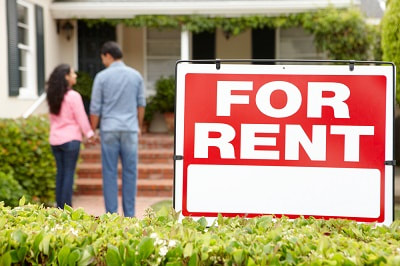Renting a Home Directly to Tenants vs Using an Agent - The Definitive Guide for New Zealand Property Investors
Renting your property directly puts you in control of your investment, while agents charge ongoing fees but offer security and increased peace of mind. This guide evaluates the pros and cons of both options and lists must-know considerations and tips
Updated 11 June 2024
Owning an investment property is a great way to grow your wealth while putting your money into an asset you can see. However, with a rental property becomes renters, which adds a load of responsibility. You have two options when renting a home to others – you can manage it yourself or hire an agent to handle it for you.
If you find a reputable agent with experience in your area, their service eliminates a lot of hassle. But there's ongoing fees and specific limitations which mean an under-performing agent can cost you a lot of money, and if you don’t do your due diligence, offer little value.
In this guide we evaluate what is better – renting a home directly or using an agent. We cover:
Owning an investment property is a great way to grow your wealth while putting your money into an asset you can see. However, with a rental property becomes renters, which adds a load of responsibility. You have two options when renting a home to others – you can manage it yourself or hire an agent to handle it for you.
If you find a reputable agent with experience in your area, their service eliminates a lot of hassle. But there's ongoing fees and specific limitations which mean an under-performing agent can cost you a lot of money, and if you don’t do your due diligence, offer little value.
In this guide we evaluate what is better – renting a home directly or using an agent. We cover:
MoneyHub Founder Christopher Walsh shares his experience:
|
"Dealing with tenants is, most often, a hassle. You put yourself as the first point of call by not using a property manager. And, in that position, you're 'on call' 24/7. Do you want to be dealing with a blocked toilet at 4am or hearing about a leaking roof during a family member's birthday party?
I've seen first-hand how much of a hassle rental property is. When I moved to London in 2010, I rented a flat in Notting Hill from an affable Italian who managed several properties. Unfortunately, he also had a full-time job. It became clear that property management was a total nuisance and consumed endless hours of his day as matters arose without any anticipation. And then he had to chase the rents every month from late-payers. Observing these experiences, I vowed never to rent property directly to tenants - I value my free time too much and don't like surprises. That being said, many New Zealanders thrive (and enjoy) life as part-time property managers. MoneyHub has published this guide to help you decide whether you want to take on these responsibilities or 'outsource' them to a professional. I wish you the best of luck whatever you decide to do". |
MoneyHub Founder Christopher Walsh
|
Renting a Home Directly to Tenants - Pros and Cons
Pros:
Cons:
- If you rent the home directly, you are in complete control. You determine the rent and who will rent the home. You know what’s going on with the home at all times and can contact the tenant as needed.
- Perhaps the largest benefit of renting a home directly is keeping 100% of the rental income for yourself. You don’t have to pay anyone to do the administrative work, collect the rents, or handle any special situations.
- You also control who performs the repairs in the home when something breaks or needs maintenance, and you can shop around for the best deals. When you use an agent, that part is out of your control, and the fees can eat up your profits as many agents add a percentage fee on top of the contractor cost to cover the 'arrangement'.
Cons:
- It’s a lot of work renting a property. You are ‘on-call’ 24/7 if something goes wrong with the property. All pressure is on you too when it comes to vetting the tenants and avoiding vacancies.
- If a tenant doesn't pay, you will have to take control and issue proceedings, negotiate and generally chase the payment. If you're working full time, this can be a massive distraction and compromise your day-to-day professional responsibilities.
- Renting a property yourself takes up a lot of time, so it’s a trade-off with the savings. If you have the time to put in, the savings are great. If you are pressed for time as it is, renting directly can be the burden you don’t want.
Renting a Home Using an Agent - Pros and Cons
Pros:
Cons:
- Using an agent has the obvious benefit of taking on the burden of everything that comes with owning a rental property (other than paying the mortgage and rates). An agent manages collecting payments, going after non-payments, and taking the middle of the night phone calls when there’s an emergency, giving you your free time back.
- Agents also do all the legwork vetting tenants, including checking their references. They also handle all administrative work, advertising, and ensuring your property and the lease meets all necessary legislation.
- In some cases, agents secure higher rents than an individual could collect because agents know what’s in demand, what renters want, and how to get it.
- Agents also alleviate some of the stress when there’s an issue between the landlord and renter.
- Fees charged are tax deductible, meaning you won't pay 100% of the agency fees (in net terms, if you're a taxpayer).
Cons:
- Agents work for a fee - usually between 8% to 12.50% of the weekly rental income. There may also be additional fees, including set-up fees and other administrative fees in special situations. As an example, a $600/week rental can cost you $3,000+ a year in agent fees.
- Agents have additional fees. For example, if you need to evict someone, have mediation, or arrange for repair services, there are often surcharges. Each agent charges different fees, so it’s important to discuss the fine print with each agent when you shop around.
- You give up control of the property. While you still own it, you are not in control of what happens. Some landlords aren’t aware of the disarray the property is in until the last tenants vacate the property and they take over. It’s a lot of trust and money to hand over the job to an agent.
Using an Agent or DIY Renting - Six Tips to Help you Decide What's Right for You
It isn't easy to decide between renting the property yourself and hiring an agent. The free time and lack of stress are helpful, but the cost and potential loss of control make it tougher.
Before you decide, consider these tips:
Before you decide, consider these tips:
- You must agree on how you’ll receive rents and document it in the tenancy agreement. Landlords must provide receipts to renters for rents received; if you don't have an invoice and receipt system, this can be additional work.
- To secure a tenant, your rent must be comparable to the market rents in the area. An agent can help you determine this amount, so you market it correctly. If you offer a property to tenants directly, it can be harder to know what to charge.
- Landlords must give renters 60 days’ notice before they put the rent up. From 12 August 2020, New Zealand law changed - rent increases are limited to once every 12 months. If you have a fixed-term tenancy, the rent may only increase if you included it in the agreement.
- Landlords cannot pass on the letting fee – if the agent charges it, you (as the property owner/landlord) will need to pay it.
- Landlords must make sure the home is tidy and safe for tenants to move into before moving day. This includes ensuring all smoke detectors work, locks are in good condition, and all structures and systems are in good working order. Agents have a process for this and know how to ensure complete compliance. Property owners renting directly may find themselves spending additional time to cover themselves.
- If tenants damage the property due to being careless, they are liable for the damages paying the lesser of 4 weeks of rent or the insurance excess. Our landlord insurance policy comparison has more details.
MoneyHub Founder Christopher Walsh shares his experience:
"I lived in a property when I first moved to Auckland at 22 which was organised chaos for the homeowners. The people that I lived with were constantly demanding things to be fixed, improved, renovated, replaced, removed...the list went on. The husband and wife team were very patient, but the obligations to attend to the trivial (and not trivial) was painful. They also were raising little children at the same time. After three years of continuous nuisance, they sold the property".
"I lived in a property when I first moved to Auckland at 22 which was organised chaos for the homeowners. The people that I lived with were constantly demanding things to be fixed, improved, renovated, replaced, removed...the list went on. The husband and wife team were very patient, but the obligations to attend to the trivial (and not trivial) was painful. They also were raising little children at the same time. After three years of continuous nuisance, they sold the property".
Using an Agent vs Renting to Tenants Directly - Frequently Asked Questions
What are the types of tenancy?
There are two types of tenancy:
- Periodic tenancy – This tenancy lasts as long as the tenant and landlord agree and goes until one or the other cancel it according to the agreement.
- Fixed-term tenancy – The tenancy lasts for the term designated in the agreement. Once expired it becomes a periodic tenancy unless both parties agree to another fixed-term tenancy.
What is a tenancy agreement?
A tenancy agreement is a document with agreed-upon terms between the tenant and landlord. The document is legally binding, and all parties must receive a copy.
What should a tenancy agreement include?
Each agreement is a little different, but they should include:
- Names of all parties
- Address of the subject property
- Dates of tenancy
- The amount of bond (if applicable)
- The amount of rent
- How the tenant will pay the rent
- A statement about the home’s insurance
- The maximum number of people that can occupy the property
- Whether the property can be sublet
- Any details about smoking, parking, use of the property or any other details you want to be included
What is a bond?
Landlords can choose to require a bond at the start of the at the beginning of the tenancy. The bond may be equal to up to 4 weeks’ of rent and must be sent to Tenancy Services for them to hold. The bond is to cover any money the tenant may owe at the end of the agreement, to make up for damages or unpaid fees.
The bond is typically refunded to the tenant, but the landlord can make a claim on it if necessary.
The bond is typically refunded to the tenant, but the landlord can make a claim on it if necessary.
How should I find a property manager?
Hiring a property manager is a big decision. Before you do, interview at least three agents. Ask the same questions of each agent so you can compare your options. Include these sample questions:
- Are you strictly a property manager, or are you a real estate agent too?
- Do you personally invest in real estate in the area?
- How long have you been a property manager?
- How many properties do you manage?
- What services do you offer within your property management program?
- What percentage of your properties are vacant?
- How do you keep up with the changing tenancy laws?
Renting to Tenants Directly vs Using an Agent - Our Conclusion
- Deciding how to manage your rental property primarily rests on two factors - time and money.
- If you're prepared to organise a rental listing, host open days, properly check tenant references and history, sign paperwork, arrange bonds, issue receipts, fix issues, organise rent reviews and chase debt, then earning around 10% per week by avoiding the use of an agent can be attractive.
- However, one mistake (or perceived mistake) in the do-it-yourself rental process and you can find yourself offside with tenants for a long time. This can influence whether they stay, meaning you may have to repeat the process over again with new tenants.
- The biggest risk is non-payment. Agents have an incentive to avoid renting to problematic tenants as their reputation and income will be adversely affected. For this reason, there's a strong argument that rent payment issues are more likely to be avoided by using an agent.
- Agents charge for their service, which may seem like money for nothing. However, there's a lot of work a property owner doesn't see that, in most cases, justifies the fees charged.
- The best approach is to, at the minimum, consider using an agent and evaluate the cost based on what you believe your peace of mind is worth. In many cases, it's likely an agent's service will deliver value for money.







